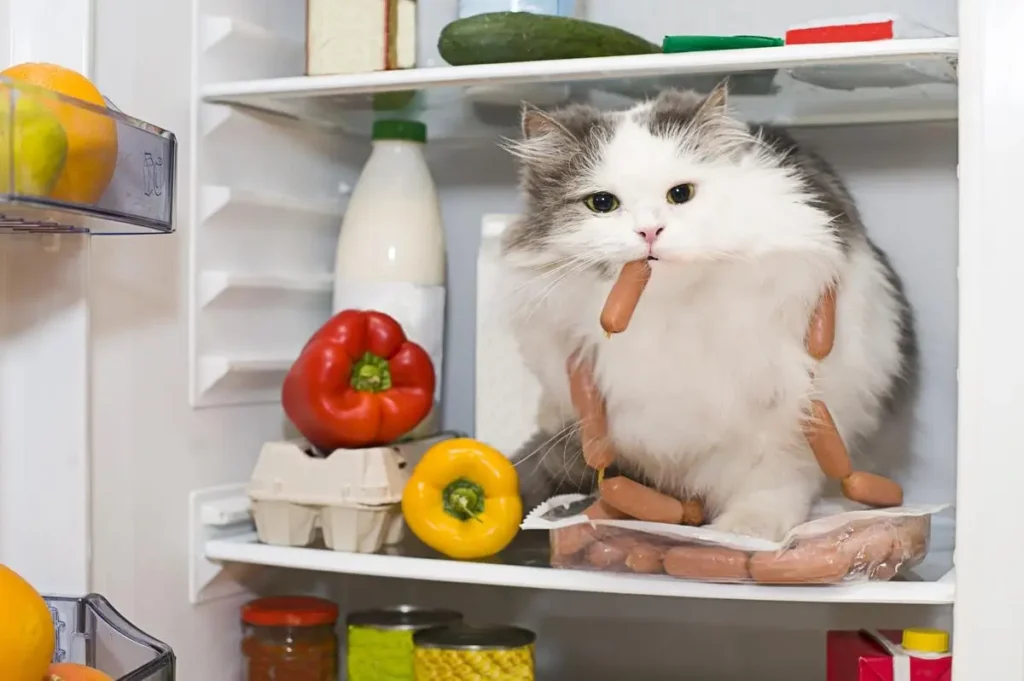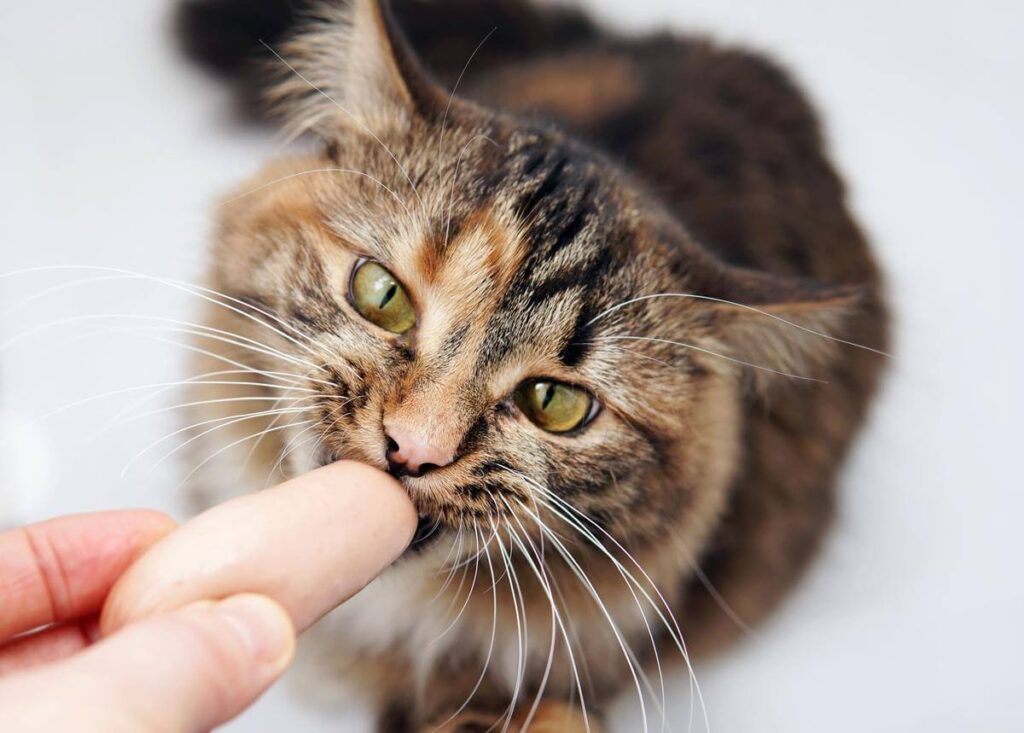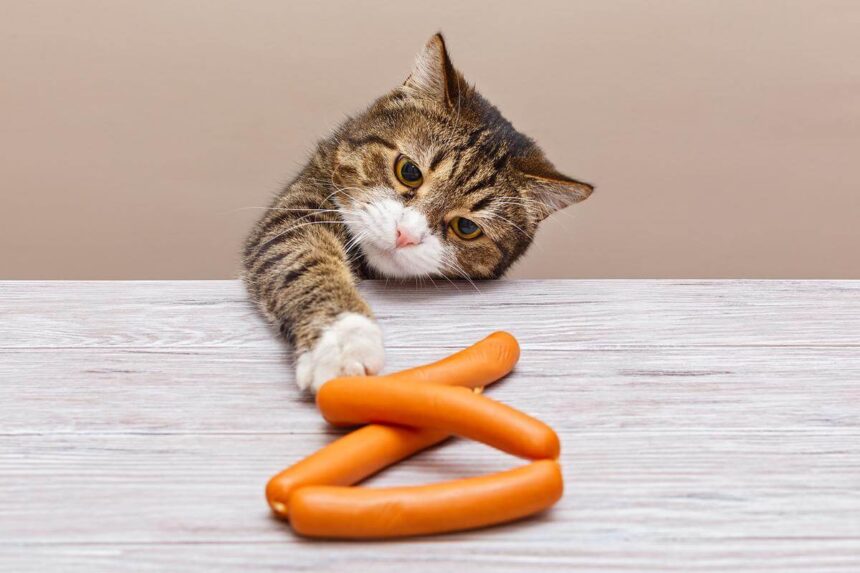Cats are known for their curious and adventurous nature, especially when it comes to food. They often explore different types of human food that are not intended for their consumption, and sometimes they even enjoy them. One such food is sausage. Sausages are a popular meat product around the world, and many people enjoy them as a part of their breakfast or a snack. But can cats eat sausage, and is it safe for them? In this article, we will explore the topic in-depth and provide you with all the information you need to know about cats and sausage.
What is sausage?
Before we delve into whether or not cats can eat sausage, let’s take a moment to understand what sausage is. Sausage is a meat product made from ground meat, fat, salt, and other seasonings. It is usually sold in a cylindrical shape and can be made from different types of meat, including pork, beef, chicken, and even fish.
Sausages can be cooked in various ways, such as grilling, frying, or boiling, and can be eaten on their own or used in different dishes, such as sandwiches, stews, and casseroles. Some sausages are also preserved by smoking, which gives them a distinct flavor and aroma.
Can cats eat sausage?
Now that we know what sausage is let’s answer the question: can cats eat sausage? The short answer is that while cats can technically eat sausage, it is not recommended.
Here’s why:
Sausages are high in fat and salt
Most types of sausage are high in fat and salt, which can be harmful to cats. Cats have a sensitive digestive system, and a high-fat diet can lead to health problems such as obesity, pancreatitis, and liver disease. Additionally, a high-salt diet can cause dehydration and can lead to high blood pressure and heart problems.
Sausages may contain harmful additives
Some types of sausage may contain harmful additives such as preservatives, artificial colors, and flavors, which can be toxic to cats. These additives can cause gastrointestinal problems, allergic reactions, and even cancer.
Sausages may contain bones
Some sausages may contain small bones, which can be dangerous for cats. Cats can easily choke on bones or suffer from intestinal blockages, which can be life-threatening.
Sausages may be cooked with onion and garlic
Many types of sausage are seasoned with onion and garlic, which are toxic to cats. These vegetables contain compounds that can damage cats’ red blood cells and cause anemia.
Overall, while cats can technically eat sausage, it is not recommended. The high fat and salt content, the risk of harmful additives, the presence of bones, and the seasoning with onion and garlic make sausage a risky food for cats.
What should cats eat instead?
So, if sausage is not a suitable food for cats, what should they eat instead? Cats are obligate carnivores, which means that they need a diet that is rich in animal protein to thrive. The best food for cats is a high-quality commercial cat food that is specifically formulated to meet their nutritional needs.
A good cat food should contain a high percentage of animal protein, moderate amounts of fat, and limited carbohydrates. It should also be free from harmful additives such as preservatives, artificial colors, and flavors. Look for cat food that is made from whole meat or meat meals and does not contain any by-products or fillers.
It is also essential to provide your cat with fresh water at all times. Cats are not natural drinkers, so they need to be encouraged to drink by providing them with fresh water in a clean bowl.
If you want to give your cat a treat, choose cat-friendly foods such as cooked chicken or fish, canned tuna in water, or a small amount of plain yogurt. These foods are safe for cats and provide them with some variety in their diet.
If you want to feed your cat a home-cooked meal, it is essential to do so under the guidance of a veterinarian or a veterinary nutritionist. A homemade diet can be nutritionally complete and balanced, but it requires careful planning and attention to detail.
You should avoid feeding your cat any human food that is high in fat, salt, or sugar. These foods can cause health problems and can lead to obesity and diabetes.
How to keep your cat safe around sausage

If you do decide to feed your cat a small amount of sausage as a treat, it is essential to take some precautions to keep them safe.
First, make sure that the sausage does not contain any harmful additives, such as preservatives, artificial colors, and flavors. Read the label carefully and choose a high-quality sausage that is made from whole meat and does not contain any by-products or fillers.
Second, make sure that the sausage is cooked thoroughly and does not contain any bones. Bones can be a choking hazard and can cause intestinal blockages.
Third, avoid seasoning the sausage with onion and garlic, which are toxic to cats. If you want to add some flavor to the sausage, try using a small amount of fresh herbs such as parsley or basil.
Finally, only feed your cat a small amount of sausage as a treat. Sausage should not be a regular part of your cat’s diet and should only be given in moderation.
FAQ’s
Is sausage toxic to cats?
Sausage is not necessarily toxic to cats, but it can be harmful if it contains harmful additives, bones, or is seasoned with onion and garlic. These ingredients can cause health problems for cats and should be avoided.
What should I do if my cat eats sausage?
If your cat eats a small amount of sausage, they may be okay. However, if they eat a large amount or show signs of illness such as vomiting, diarrhea, or lethargy, you should contact your veterinarian immediately.
What other human foods can cats eat?
There are some human foods that cats can eat in moderation, such as cooked chicken or fish, canned tuna in water, or a small amount of plain yogurt. However, it is important to avoid feeding cats any human foods that are high in fat, salt, or sugar.
How much sausage can I give my cat?
Sausage should not be a regular part of your cat’s diet and should only be given in moderation as a treat. Only give your cat a small amount of sausage, and make sure it does not contain harmful additives, bones, or is seasoned with onion and garlic.
Can cats eat raw sausage?

No, cats should not eat raw sausage. Raw meat can contain harmful bacteria and parasites that can cause health problems for cats. Sausage should always be cooked thoroughly before feeding it to your cat.
What are the health risks of feeding cats sausage?
Feeding cats sausage can lead to health problems such as obesity, diabetes, pancreatitis, and gastrointestinal issues. Sausage is high in fat and salt, and may contain harmful additives that can be detrimental to a cat’s health.
How should I introduce new foods to my cat’s diet?
It is important to introduce new foods to your cat’s diet slowly and in small amounts. Start with a small amount of the new food and gradually increase it over a period of several days. If your cat shows any signs of illness or discomfort, stop feeding the new food and consult with your veterinarian.
Can cats eat sausage as a part of their regular diet?
No, sausage should not be a part of a cat’s regular diet. Cats have specific nutritional requirements that can be met with a high-quality commercial cat food that is specifically formulated for their needs.
What are the symptoms of onion and garlic toxicity in cats?
Onion and garlic can be toxic to cats and can cause symptoms such as vomiting, diarrhea, lethargy, abdominal pain, and anemia. In severe cases, it can lead to organ damage and even death.
Can cats eat sausage that has been cooked on the barbecue?
No, barbecue sausage should not be fed to cats. The smoke and seasonings used in barbecue cooking can be harmful to cats, and the high heat used in barbecuing can cause the sausage to become charred, which can be harmful to a cat’s health.
What should I do if my cat gets sick after eating sausage?
If your cat gets sick after eating sausage, you should contact your veterinarian immediately. They will be able to advise you on the best course of action and may recommend that you bring your cat in for an examination.
Are there any alternative treats that I can give my cat instead of sausage?
Yes, there are many alternative treats that you can give your cat instead of sausage. Some examples include cooked chicken or fish, canned tuna in water, or a small amount of plain yogurt. You can also look for commercial cat treats that are specifically designed for cats.
Can I feed my cat sausage from my own plate?
No, you should not feed your cat sausage from your own plate. It is important to avoid feeding cats human food that is high in fat, salt, or sugar. Additionally, many human foods contain harmful additives and seasonings that can be toxic to cats.
What are the long-term health risks of feeding cats a diet that is high in fat and salt?
Feeding cats a diet that is high in fat and salt can lead to long-term health problems such as obesity, diabetes, hypertension, and heart disease. These conditions can be life-threatening and can significantly reduce a cat’s quality of life.
Can cats be vegetarian or vegan?
A: While it is possible to feed cats a vegetarian or vegan diet, it is not recommended. Cats are obligate carnivores and require certain nutrients that can only be found in meat. A vegetarian or vegan diet may lead to nutritional deficiencies and health problems.
Conclusion
In conclusion, while cats can technically eat sausage, it is not recommended. Sausage is high in fat and salt, may contain harmful additives, bones, and is often seasoned with onion and garlic, which are toxic to cats. Instead, cats should be fed a high-quality commercial cat food that is specifically formulated to meet their nutritional needs.
If you want to give your cat a treat, choose cat-friendly foods such as cooked chicken or fish, canned tuna in water, or a small amount of plain yogurt. If you do decide to feed your cat a small amount of sausage as a treat, take some precautions to keep them safe, such as avoiding harmful additives and bones, avoiding seasoning with onion and garlic, and only feeding a small amount.
Remember, as a cat owner, it is your responsibility to provide your cat with a balanced and nutritious diet that will keep them healthy and happy. If you have any questions or concerns about your cat’s diet, always consult with your veterinarian or a veterinary nutritionist.


